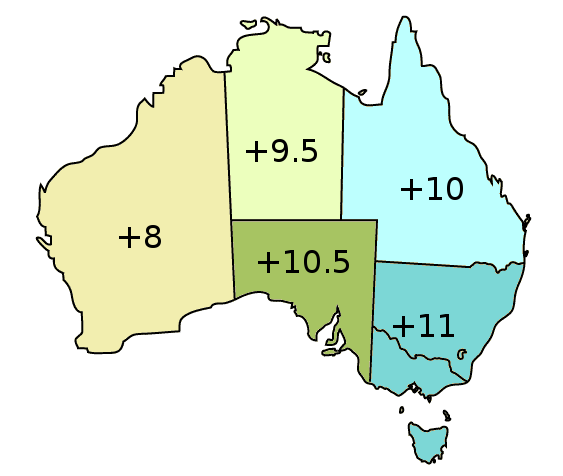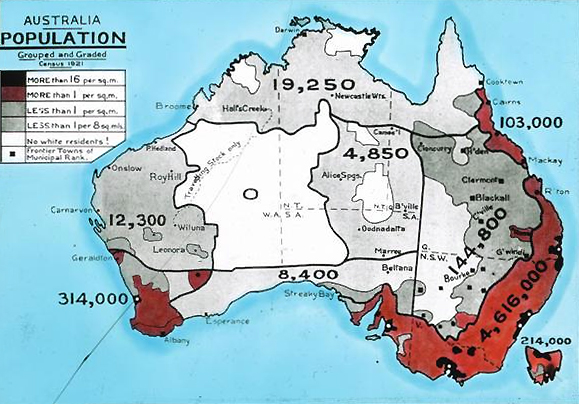|
Witta, Queensland
Witta is a rural town and locality in the Sunshine Coast Region, Queensland, Australia. In the , Witta had a population of 1,201 people. History Witta was first settled around 1887 by German immigrant families. They called it ''Teutoberg'' (also spelled ''Teutoburg''), possibly referring to the Teutoburg Forest area in Germany. The town was renamed in 1916 during World War 1 due to anti-German sentiment. The name Witta is a corruption of the word ''wetya'' meaning ''dingo'' in the Kabi language. Maleny Provisional School opened on 1 October 1892 with the first enrolments on 3 October 1892. It was renamed Teutoberg Provisional School in 1893. It became Teutoberg State School in 1909, and Witta State School in 1926. The school closed on 23 August 1974. A reserve for a School of Arts (often known as '' Mechanics' institutes'' outside Queensland) was gazetted in 1907. The School of Arts was opened on 7 October 1908 by Harry Frederick Walker, Member of the Queensland Legislativ ... [...More Info...] [...Related Items...] OR: [Wikipedia] [Google] [Baidu] |
AEST
Australia uses three main time zones: Australian Western Standard Time (AWST; UTC+08:00), Australian Central Standard Time (ACST; UTC+09:30), and Australian Eastern Standard Time (AEST; UTC+10:00). Time is regulated by the individual state governments, some of which observe daylight saving time (DST). Australia's external territories observe different time zones. Standard time was introduced in the 1890s when all of the Australian colonies adopted it. Before the switch to standard time zones, each local city or town was free to determine its local time, called local mean time. Now, Western Australia uses Western Standard Time; South Australia and the Northern Territory use Central Standard Time; while New South Wales, Queensland, Tasmania, Victoria (Australia), Victoria, Jervis Bay Territory, and the Australian Capital Territory use Eastern Standard Time. Daylight saving time (+1 hour) is used in jurisdictions in the south and south-east: South Australia, New South Wales, Vict ... [...More Info...] [...Related Items...] OR: [Wikipedia] [Google] [Baidu] |
World War I
World War I (28 July 1914 11 November 1918), often abbreviated as WWI, was one of the deadliest global conflicts in history. Belligerents included much of Europe, the Russian Empire, the United States, and the Ottoman Empire, with fighting occurring throughout Europe, the Middle East, Africa, the Pacific, and parts of Asia. An estimated 9 million soldiers were killed in combat, plus another 23 million wounded, while 5 million civilians died as a result of military action, hunger, and disease. Millions more died in genocides within the Ottoman Empire and in the 1918 influenza pandemic, which was exacerbated by the movement of combatants during the war. Prior to 1914, the European great powers were divided between the Triple Entente (comprising France, Russia, and Britain) and the Triple Alliance (containing Germany, Austria-Hungary, and Italy). Tensions in the Balkans came to a head on 28 June 1914, following the assassination of Archduke Franz Ferdin ... [...More Info...] [...Related Items...] OR: [Wikipedia] [Google] [Baidu] |
Witta Cemetery Gates, 2006
Witta may refer to: *Witta (Wicca), a witchcraft tradition created by author Edain McCoy *Witta of BĂĽraburg, a missionary and bishop in 8th-century Germany *Witta, son of Wecta, a Jutish chieftain in 5th-century sub-Roman Britain *Witta (Bishop of Lichfield) (before 737 - c. 750) *Witta, Queensland, a town in the Sunshine Coast Region, Queensland, Australia See also *Witan The Witan () was the king's council in Anglo-Saxon England from before the seventh century until the 11th century. It was composed of the leading magnates, both ecclesiastic and secular, and meetings of the council were sometimes called the Wit ..., or Witenagemot, historic English council {{disambig ... [...More Info...] [...Related Items...] OR: [Wikipedia] [Google] [Baidu] |
Blackall Ranges
The Blackall Range is a mountain range in South East Queensland, Australia. The first European explorer in the area was Ludwig Leichhardt. It was named after Samuel Blackall, the second Governor of Queensland. The Blackall Range dominates the hinterland area of the Sunshine Coast, west of Nambour. Maleny, Mapleton, Montville and Flaxton are the main settlements located on the range. The Stanley River rises from the southern slopes. Baroon Pocket Dam is a reservoir on Obi Obi Creek which drains the north west slopes of the range. Mary Cairncross Reserve marks the site of the first settler's house on the Blackall Range. Curramore Sanctuary, Mapleton Falls National Park and Kondalilla National Park are also located on the range. A number of lookouts on the range provide views towards the coast. One of these is located at Howells Knob, a mountain which rises 561 m above sea level. Timber resources in the area attracted timber-cutters in 1860s. The last logging on the range o ... [...More Info...] [...Related Items...] OR: [Wikipedia] [Google] [Baidu] |
Census In Australia
The Census in Australia, officially the Census of Population and Housing, is the national census in Australia that occurs every five years. The census collects key demographic, social and economic data from all people in Australia on census night, including overseas visitors and residents of Australian external territories, only excluding foreign diplomats. The census is the largest and most significant statistical event in Australia and is run by the Australian Bureau of Statistics (ABS). Every person must complete the census, although some personal questions are not compulsory. The penalty for failing to complete the census after being directed to by the Australian Statistician is one federal penalty unit, or . The ''Australian Bureau of Statistics Act 1975'' and ''Census and Statistics Act 1905'' authorise the ABS to collect, store, and share anonymised data. The most recent census was held on 10 August 2021, with the data planned to be released starting from mid-2022. ... [...More Info...] [...Related Items...] OR: [Wikipedia] [Google] [Baidu] |
Chronicle And North Coast Advertiser
''The Chronicle And North Coast Advertiser'' was a newspaper published in Nambour, Queensland, Australia. History The first issue was published on 31 July 1903 by proprietor and editor, Luke Wilkinson. The last issue was published in 1983. Digitisation Issues from 1903 to 1922 have been digitised and are available through Trove Trove is an Australian online library database owned by the National Library of Australia in which it holds partnerships with source providers National and State Libraries Australia, an aggregator and service which includes full text document .... References External links * {{trove newspaper, 286, Chronicle and North Coast Advertiser, Qld. : 1903 - 1922 Defunct newspapers published in Queensland ... [...More Info...] [...Related Items...] OR: [Wikipedia] [Google] [Baidu] |
Electoral District Of Wide Bay
Wide Bay was a Legislative Assembly electorate in the state of Queensland. History Wide Bay was one of the 16 original electorates of 1859; it centred on Maryborough but also included the coastal strip from the Mooloolah River, north to Bustard Head near Gladstone. However, in 1864, the Electoral district of Maryborough was established and the Wide Bay electorate contracted towards the south of Maryborough but still include the rural areas around Maryborough. Initially Wide Bay was a single member constituency, but from 1878 to 1888 it became a two-member constituency, after which it reverted to a single member. In the 1949 redistribution, taking effect in 1950, Wide Bay was abolished, being split up between the Electoral district of Marodian and the Electoral district of Nash. 1871 In the 1871 election held on 13 July, the sitting member for Wide Bay, Henry King, decided to contest the electoral district of Maryborough instead of Wide Bay. King supported the nominati ... [...More Info...] [...Related Items...] OR: [Wikipedia] [Google] [Baidu] |
Member Of The Queensland Legislative Assembly
This is a list of members of the Legislative Assembly of Queensland, the state parliament of Queensland, sorted by parliament. See also * Queensland Legislative Assembly electoral districts This is a list of current and former electoral divisions for the Legislative Assembly of Queensland, the state legislature for Queensland, Australia. Current Districts by region Districts in Far North Queensland * Barron River * Cairns * Co ... {{Members of the Parliament of Queensland ... [...More Info...] [...Related Items...] OR: [Wikipedia] [Google] [Baidu] |
Harry Walker (politician)
Harry Frederick Walker (15 April 1873 – 23 October 1950) was an Australian company director and member of the Queensland Legislative Assembly. Biography Walker was born in Gympie, Queensland, to parents William Henry Walker and his wife Charlotte Caroline (née Stocker) and was educated at One Mile State School, Monkland State School and the local Grammar School. He was a miner and engine-driver in 1890 and in 1897 was part of the Light Horse Jubilee Contingent in London. He fought in the Boer War and by 1906 was the chairman of the Murarrie Bacon Factory and a director of the Wide Bay Cooperative Dairy Co. In 1903, Walker had acquired a farm at Coles Creek, Gympie and by 1920 he was a farmer at Tewantin. On the 17 Feb 1894 he married Rosanna Martin (died 1961)Family history research &m ... [...More Info...] [...Related Items...] OR: [Wikipedia] [Google] [Baidu] |
The Brisbane Courier
''The Courier-Mail'' is an Australian newspaper published in Brisbane. Owned by News Corp Australia, it is published daily from Monday to Saturday in tabloid format. Its editorial offices are located at Bowen Hills, in Brisbane's inner northern suburbs, and it is printed at Murarrie, in Brisbane's eastern suburbs. It is available for purchase throughout Queensland, most regions of Northern New South Wales and parts of the Northern Territory. History The history of ''The Courier-Mail'' is through four mastheads. The ''Moreton Bay Courier'' later became '' The Courier'', then the ''Brisbane Courier'' and, since a merger with the Daily Mail in 1933, ''The Courier-Mail''. The ''Moreton Bay Courier'' was established as a weekly paper in June 1846. Issue frequency increased steadily to bi-weekly in January 1858, tri-weekly in December 1859, then daily under the editorship of Theophilus Parsons Pugh from 14 May 1861. The recognised founder and first editor was Arthur Sidney Lyon (18 ... [...More Info...] [...Related Items...] OR: [Wikipedia] [Google] [Baidu] |
Kabi Language
Kabi Kabi, also spelt Gabi-Gabi/Gubbi Gubbi, is a language of Queensland in Australia, formerly spoken by the Kabi Kabi people of South-east Queensland. The main dialect, Kabi Kabi, is extinct, but there are still 24 people with knowledge of the Butchulla dialect (also spelt Batjala, Batyala, Badjala, and variants), a language spoken by the Butchulla people of Fraser Island. Words According to Norman Tindale (1974), the word Kabi ( kabi, means "no". "Wunya ngulum" means "Welcome, everyone" in Kabi Kabi/Gabi-Gabi. Language status The main dialect is extinct, but there were still 24 people with knowledge of the Batjala dialect (a language spoken by the Butchulla people of Fraser Island) as of the 2016 Australian census. Phonology The following is in the Badjala/Butchulla dialect: Consonants * /nĚŞ/ is always heard as palatal ˛when preceding /i/, and in word-final position. * /dĚŞ/ can be heard in free variation with palatal ź * /b dĚŞ ɡ/ can have lenited allophones ˛ Ă° ... [...More Info...] [...Related Items...] OR: [Wikipedia] [Google] [Baidu] |


